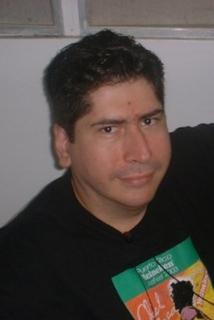Dictator Hugo Chavez Begins 'Maximum Revolution'

Dictator Hugo Chavez Begins 'Maximum Revolution'
NewsMax.com WiresWednesday, Jan. 31, 2007
NewsMax.com WiresWednesday, Jan. 31, 2007
CARACAS, Venezuela -- A Congress wholly loyal to President Hugo Chavez met at a downtown plaza Wednesday to give the Venezuelan leader authority to enact sweeping measures by presidential decree.
Hundreds of Chavez supporters wearing red - the color of Venezuela's ruling party - gathered in the plaza, waving signs reading "Socialism is democracy!" as lawmakers read out the proposed bill giving the president special powers for 18 months to transform 11 broadly defined areas, including the economy, energy and defense.
"The people of Venezuela, not just the National Assembly, are giving this enabling power to the president of the republic," said congresswoman Iris Varela, addressing the crowd next to the National Assembly.
Chavez, who is beginning a fresh six-year term, says the legislation will be the start of a new era of "maximum revolution" during which he will consolidate Venezuela's transformation into a socialist society. His critics, however, are calling it a radical lurch toward authoritarianism by a leader with unchecked power.
The former paratroop commander has already said he will use the law to decree nationalizations of Venezuela's largest telecommunications company and the electricity sector, slap new taxes on the rich and impose greater state control over the oil and natural gas industries.
A final draft of the law shows Chavez will also be allowed to dictate unspecified measures to transform state institutions; reform banking, tax, insurance and financial regulations; decide on security and defense matters such as gun regulations and military organization; and "adapt" legislation to ensure "the equal distribution of wealth" as part of a new "social and economic model."
Chavez also plans to reorganize regional territories and carry out reforms aimed at bringing "power to the people" through thousands of newly formed Communal Councils, in which Venezuelans will have a say on spending an increasing flow of state money on neighborhood projects from public housing to road repaving.
Story Continues Below
Lawmakers were scheduled to formally approve the law Wednesday in an outdoor session in Caracas' Plaza Bolivar, next to the National Assembly.
Chavez's supporters deny the law constitutes an abuse of power and argue radical steps are necessary to accelerate the creation of a more egalitarian society.
National Assembly President Cilia Flores said the special powers will enable Chavez to enact new laws that "will benefit the people, those who were excluded their whole lives. They are laws for inclusion and social justice."
Others say the enabling law is dangerously concentrating power in the hands of single man.
Historian Ines Quintero said that with the new powers, Chavez will achieve a level of "hegemony" that is unprecedented in Venezuela's nearly five decades of democratic history.
She said the effects will be "exponential" because Chavez will wield "extraordinary powers" in a context where state institutions are weakening and the division of powers is not being respected.
Chavez has requested special powers twice before.
In 1999, shortly after he was first elected, he was only able to push through two new taxes and a revision of the income tax law after facing fierce opposition in congress. In 2001, by invoking an "enabling law" for the second time, he decreed 49 laws including controversial agrarian reform measures and a law that sharply raised taxes on foreign oil companies operating in Venezuela.
This time, the law will give Chavez a free hand to bring under state control some oil and natural gas projects that are still run by private companies - the latest in a series of nationalist energy policies in Venezuela, a top oil supplier to the United States and home to South America's largest gas reserves.
Chavez has said oil companies upgrading heavy oil in the Orinoco River basin - British Petroleum PLC, Exxon Mobil Corp., Chevron Corp., ConocoPhillips Co., Total SA and Statoil ASA - must submit to state-controlled joint ventures, as companies have already done elsewhere in the country.
The law gives Chavez the authority to intervene and "regulate" the transition to joint ventures if companies do not adapt to the new framework within an unspecified "peremptory period."



1 Comments:
Antonio Velázquez, Administrador de Perspectiva Estadista les invita a acompañar al Presidente del Partido Nuevo Progresista, el Dr. Pedro Rosselló este martes 6 de febrero del 2007 a la vista que se celebrará en su contra, acompañalo al tribunal de San Juan. Hoy es el Presidente del Partido Nuevo Progresista mañana puedes ser tú.
Publicar un comentario
<< Home